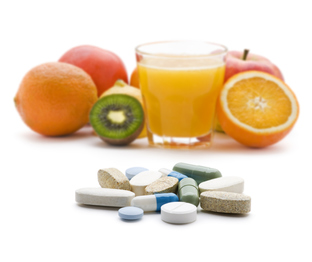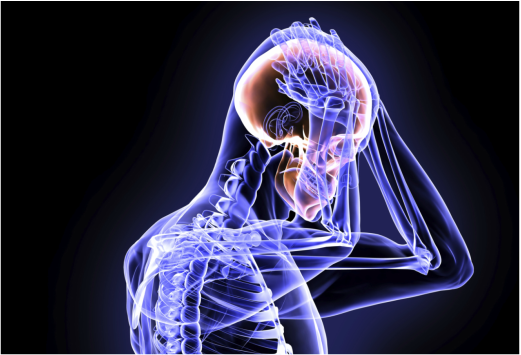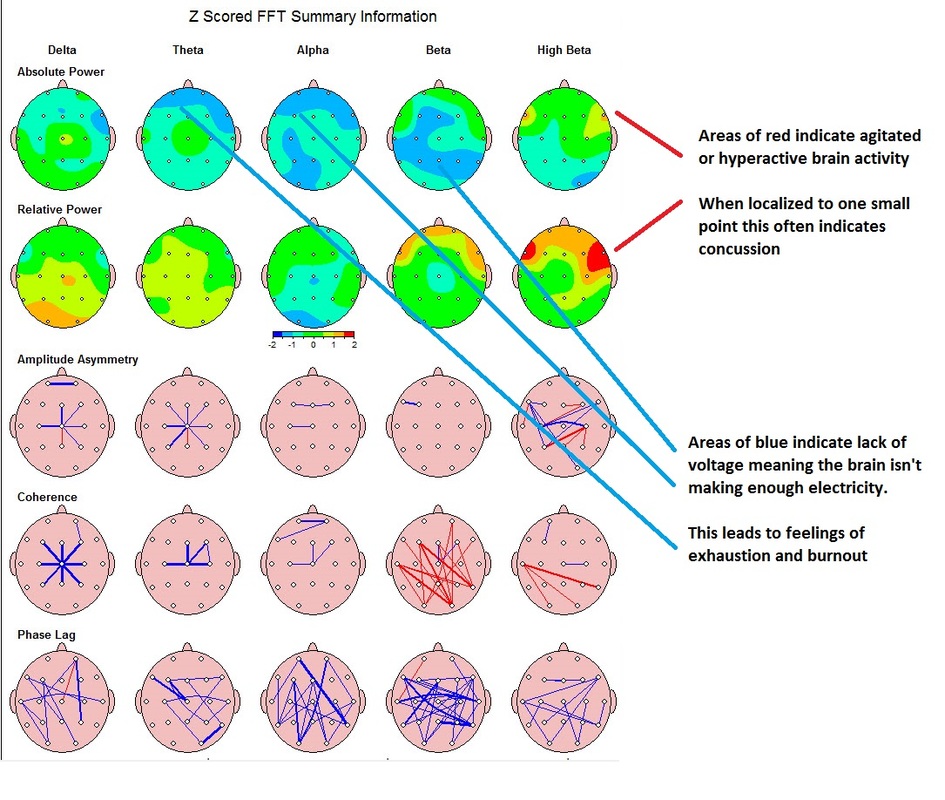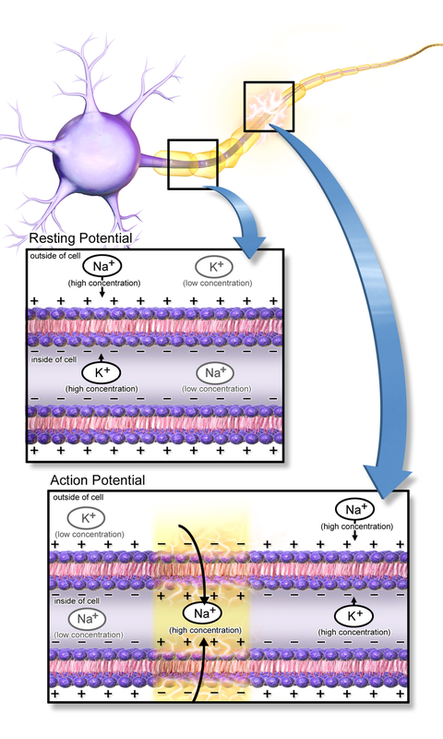4 Natural supplements to help prevent and heal concussion
Doctors and scientists are quickly realizing that concussions must be taken very seriously and can have many long term negative health consequences for the brain. A concussion is a complex injury, not only do your brain cells get physically injured and become inflamed, but a concussion also sets off an entire cascade chemical metabolic problems in the brain. The brains ability to generate energy becomes severely compromised leading to the exhaustion, burnout and brain fog symptoms that are associated with concussions. Because of the chemical nature of concussion problems, they can be very difficult to heal from and many researchers have taken an interest in using natural supplements to help decrease inflammation and promote resilience in the brain. While good quality human clinical trials are needed to fully prove the effectiveness of these supplements, they show a lot of promise for healing concussions after they happen and also in building resilience to prevent damage caused by a concussion before they occur.
If you or someone you know is at risk of being concussed or has suffered a concussion, you may want to stock up on some of these brain boosting nutrients.
Summary:
Omega 3 oils (EPA, DHA):
Curcumin (Bioavailable):
Creatine:
N-Acetyl Cysteine (NAC):
Omega-3 polyunsaturated fatty acids
Omega-3 fats such as those found in fish oil have taken the natural health community by storm. These oils are essential for good health in general but are particularly well known for their ability to strengthen the brain. Omega-3’s are critical building blocks for brain cells, as approximately 60% of our brain is made out of fat. The delicate balance of omega-3’s in the brain is needed to perform hundreds of different important functions, and supplementing with them has been shown to support brain health significantly.
For concussions, taking Omega-3’s helps to reduce inflammation and promote the rebuilding of damaged brain tissue. Better yet, in some animal studies taking omega-3 prior to a head injury helped reduce the damage caused by concussions, and the mice that were taking it healed faster than those that weren’t. Most of the concussion research around this supplement has only been done with animals, but given what we know about the many health benefits of Omega-3’s they are well worth the investment. Many doctors and scientists are very excited about the possibilities this supplement has to help prevent and heal head injuries.
Curcumin
Curcumin is a substance extracted from the spice turmeric and is another nutrient that shows great promise with concussion. Curcumin is a powerful anti-inflammatory nutrient that is being used to treat many health problems from rheumatoid arthritis to depression. Curcumin readily crosses the blood brain barrier meaning that it gets absorbed by the brain and can exert its amazing inflammation reducing properties there as well.
Concussions cause a large amount of inflammation and oxidative damage to the brain which comes in the form of the headaches and difficulty with mental functioning that people experience. Several studies have found that taking curcumin helps quench many of the damaging inflammatory chemical cascades that happen post injury and as a result promotes healing.
According to researchers, curcumin works best as a preventative agent, meaning that if you are in a sport or occupation that is at risk of causing concussion, taking curcumin daily will help minimize the damage to your brain if a concussion were to happen. You can also take curcumin immediately after a concussion happens. If you ingest it within 1 hour of being hit, it will exert its most benefit and help prevent the dangerous inflammatory cascade that causes so many problems. However, curcumin can also be taken after a concussion has happened to promote healing. At our clinic, many of our clients find that curcumin helps to reduce their headaches and promote mental clarity while they are in the process of recovery.
Not all curcumin is created equal, it is best to get a high quality version of the supplement at your local health food store. Ask the store expert for bioavailable curcumin, this will ensure your body will absorb the nutrients in order to get the full benefit of the supplement. Curcumin dosing will depend on the purity and type of curcumin you purchase, follow instructions on the bottle for ideal results.
Creatine
Most people know of creatine as the supplement used by body builders when they want to get an edge in the gym. Aside from its well-known properties of helping to enhance the quality of workouts and promoting muscle endurance, creatine has surprising health benefits for the brain too.
Creatine works by providing cells with extra energy. The universal energy currency of our body is a substance called ATP. Our body uses ATP to generate the power needed for practically every biological process that goes on in cells. Creatine works by helping the body to create and cycle ATP more efficiently, providing us with more energy than we might otherwise have.
In concussions this is absolutely critical. As we mentioned before, a concussion isn’t just a physical injury, but a metabolic injury as well. The brain’s ability to make the energy it desperately needs gets severely compromised, meaning its ability to function and heal itself is much less effective. Taking creatine helps the brain to generate more ATP and thus make more energy it can use to begin the process of repairing.
In a study of children who had been concussed, creatine supplementation was shown to decrease the length of stay in intensive care, improve mental functioning across a number of measures and decreased headaches and dizziness. The children who didn’t get creatine did not show the same improvements. Creatine is very well tolerated and causes no significant side effects even at high doses.
The ideal dosage of creatine in the above study for post injury repair was 0.4 grams per kilogram of body weight. For a 150 pound (68 kilogram) person this would be 27grams per day spaced in several small doses throughout the day. Creatine is also helpful in preventing head injuries in animal studies of concussion and is great for athletes as it provides extra energy for the muscles on top of its brain protecting effects. For injury prevention take whatever recommended dose is listed on the package of creatine you purchase daily.
N-acetyl Cysteine
N- acetyl cysteine (NAC) is another potent anti-inflammatory and antioxidant nutrient that is readily available over the counter. NAC helps your body to create its own supply of the “master antioxidant” glutathione, which is critical for injury repair and healing. While most research into NAC for head injury is preliminary in animal studies, one study performed in a military hospital showed very promising results.
Soldiers who had suffered symptoms of brain trauma after being near an explosion were given either a placebo or NAC. Those who received the supplement were significantly better after 7 days and had an 86% chance of full symptom resolution as opposed to 42% of those who got the placebo.
NAC is considered a safe, natural supplement and shows a lot of potential in treating TBI injuries. You can take it immediately after a suspected head injury to help prevent the cascade of inflammation that occurs in the brain or as a preventative measure. While it hasn’t yet been fully proven as a medicine, it has the interest of a lot of top concussion researchers. Take 500 mg per day for concussion prevention and repair.
Conclusion:
These 4 supplements are all powerful healing nutrients that have great potential for preventing concussions and helping people heal from them as well.
Taking each one of these supplements daily if there is a risk of getting concussed should help to strengthen the overall resilience of the brain making people less prone to being injured. Each supplement also has powerful healing properties that are well suited to the biological problems caused by a concussion. Taking them regularly after an injury has happened can help promote better healing and reduce symptoms.
References:
Barrett, Erin Cernkovich, Michael I. McBurney, and Eric D. Ciappio. "ω-3 fatty acid supplementation as a potential therapeutic aid for the recovery from mild traumatic brain injury/concussion." Advances in Nutrition: An International Review Journal 5.3 (2014): 268-277.
Eakin, Katharine, et al. "Efficacy of N-acetyl cysteine in traumatic brain injury." PloS one 9.4 (2014): e90617.
Hasadsri, Linda, et al. "Omega-3 fatty acids as a putative treatment for traumatic brain injury." Journal of neurotrauma 30.11 (2013): 897-906.
Hoffer, Michael E., et al. "Amelioration of acute sequelae of blast induced mild traumatic brain injury by N-acetyl cysteine: a double-blind, placebo controlled study." PloS one 8.1 (2013): e54163.
Scheff, Stephen W., and Harabhajan S. Dhillon. "Creatine-enhanced diet alters levels of lactate and free fatty acids after experimental brain injury."Neurochemical research 29.2 (2004): 469-479.
Sakellaris, George, et al. "Prevention of traumatic headache, dizziness and fatigue with creatine administration. A pilot study." Acta paediatrica 97.1 (2008): 31-34.
Saraiva, André Luis Lopes, et al. "Creatine reduces oxidative stress markers but does not protect against seizure susceptibility after severe traumatic brain injury." Brain research bulletin 87.2 (2012): 180-186.
Petraglia, Anthony L., Ethan A. Winkler, and Julian E. Bailes. "Stuck at the bench: Potential natural neuroprotective compounds for concussion."Surgical neurology international 2 (2011).
Wu, Aiguo, Zhe Ying, and Fernando Gomez-Pinilla. "Dietary curcumin counteracts the outcome of traumatic brain injury on oxidative stress, synaptic plasticity, and cognition." Experimental neurology 197.2 (2006): 309-317.
Wu, Aiguo, Zhe Ying, and Fernando Gomez-Pinilla. "Dietary omega-3 fatty acids normalize BDNF levels, reduce oxidative damage, and counteract learning disability after traumatic brain injury in rats." Journal of neurotrauma21.10 (2004): 1457-1467.
Wu, Aiguo, Zhe Ying, and Fernando Gomez-Pinilla. "Dietary curcumin counteracts the outcome of traumatic brain injury on oxidative stress, synaptic plasticity, and cognition." Experimental neurology 197.2 (2006): 309-317.
Zhu, Hai-tao, et al. "Curcumin attenuates acute inflammatory injury by inhibiting the TLR4/MyD88/NF-κB signaling pathway in experimental traumatic brain injury." Journal of neuroinflammation 11.1 (2014): 1.
If you or someone you know is at risk of being concussed or has suffered a concussion, you may want to stock up on some of these brain boosting nutrients.
Summary:
Omega 3 oils (EPA, DHA):
- Rebuilds brain tissue and reduces inflammation, an essential part of human nutrition
- Aids in rebuilding brain cells and healing inflammation after injury
- Take at least 1200mg per day
Curcumin (Bioavailable):
- Helps prevent the dangerous cascade of inflammation that damages the brain after concussion
- Keep a bottle in your athletic bag, administer a double dose after a known or suspected concussion immediately after the injury happens to help prevent further damage
- Also helps prevent concussions from happening when taken regularly throughout the season
- Be sure to ask at the health food store for bioavailable curcumin to ensure you get high quality
Creatine:
- Safe, effective athletic performance enhancer with surprising benefits for the brain
- Creatine provides the body and brain with increased ability for energy production which is desperately needed after concussion
- For recovery take 0.4 grams per Kg of body weight spaced in several doses throughout the day
N-Acetyl Cysteine (NAC):
- NAC is a powerful anti-inflammatory supplement and helps build our bodies “master antioxidant”
- Take as a preventative measure throughout the season to prevent concussion (500mg per day)
- Also extremely helpful in concussion recovery
Omega-3 polyunsaturated fatty acids
Omega-3 fats such as those found in fish oil have taken the natural health community by storm. These oils are essential for good health in general but are particularly well known for their ability to strengthen the brain. Omega-3’s are critical building blocks for brain cells, as approximately 60% of our brain is made out of fat. The delicate balance of omega-3’s in the brain is needed to perform hundreds of different important functions, and supplementing with them has been shown to support brain health significantly.
For concussions, taking Omega-3’s helps to reduce inflammation and promote the rebuilding of damaged brain tissue. Better yet, in some animal studies taking omega-3 prior to a head injury helped reduce the damage caused by concussions, and the mice that were taking it healed faster than those that weren’t. Most of the concussion research around this supplement has only been done with animals, but given what we know about the many health benefits of Omega-3’s they are well worth the investment. Many doctors and scientists are very excited about the possibilities this supplement has to help prevent and heal head injuries.
Curcumin
Curcumin is a substance extracted from the spice turmeric and is another nutrient that shows great promise with concussion. Curcumin is a powerful anti-inflammatory nutrient that is being used to treat many health problems from rheumatoid arthritis to depression. Curcumin readily crosses the blood brain barrier meaning that it gets absorbed by the brain and can exert its amazing inflammation reducing properties there as well.
Concussions cause a large amount of inflammation and oxidative damage to the brain which comes in the form of the headaches and difficulty with mental functioning that people experience. Several studies have found that taking curcumin helps quench many of the damaging inflammatory chemical cascades that happen post injury and as a result promotes healing.
According to researchers, curcumin works best as a preventative agent, meaning that if you are in a sport or occupation that is at risk of causing concussion, taking curcumin daily will help minimize the damage to your brain if a concussion were to happen. You can also take curcumin immediately after a concussion happens. If you ingest it within 1 hour of being hit, it will exert its most benefit and help prevent the dangerous inflammatory cascade that causes so many problems. However, curcumin can also be taken after a concussion has happened to promote healing. At our clinic, many of our clients find that curcumin helps to reduce their headaches and promote mental clarity while they are in the process of recovery.
Not all curcumin is created equal, it is best to get a high quality version of the supplement at your local health food store. Ask the store expert for bioavailable curcumin, this will ensure your body will absorb the nutrients in order to get the full benefit of the supplement. Curcumin dosing will depend on the purity and type of curcumin you purchase, follow instructions on the bottle for ideal results.
Creatine
Most people know of creatine as the supplement used by body builders when they want to get an edge in the gym. Aside from its well-known properties of helping to enhance the quality of workouts and promoting muscle endurance, creatine has surprising health benefits for the brain too.
Creatine works by providing cells with extra energy. The universal energy currency of our body is a substance called ATP. Our body uses ATP to generate the power needed for practically every biological process that goes on in cells. Creatine works by helping the body to create and cycle ATP more efficiently, providing us with more energy than we might otherwise have.
In concussions this is absolutely critical. As we mentioned before, a concussion isn’t just a physical injury, but a metabolic injury as well. The brain’s ability to make the energy it desperately needs gets severely compromised, meaning its ability to function and heal itself is much less effective. Taking creatine helps the brain to generate more ATP and thus make more energy it can use to begin the process of repairing.
In a study of children who had been concussed, creatine supplementation was shown to decrease the length of stay in intensive care, improve mental functioning across a number of measures and decreased headaches and dizziness. The children who didn’t get creatine did not show the same improvements. Creatine is very well tolerated and causes no significant side effects even at high doses.
The ideal dosage of creatine in the above study for post injury repair was 0.4 grams per kilogram of body weight. For a 150 pound (68 kilogram) person this would be 27grams per day spaced in several small doses throughout the day. Creatine is also helpful in preventing head injuries in animal studies of concussion and is great for athletes as it provides extra energy for the muscles on top of its brain protecting effects. For injury prevention take whatever recommended dose is listed on the package of creatine you purchase daily.
N-acetyl Cysteine
N- acetyl cysteine (NAC) is another potent anti-inflammatory and antioxidant nutrient that is readily available over the counter. NAC helps your body to create its own supply of the “master antioxidant” glutathione, which is critical for injury repair and healing. While most research into NAC for head injury is preliminary in animal studies, one study performed in a military hospital showed very promising results.
Soldiers who had suffered symptoms of brain trauma after being near an explosion were given either a placebo or NAC. Those who received the supplement were significantly better after 7 days and had an 86% chance of full symptom resolution as opposed to 42% of those who got the placebo.
NAC is considered a safe, natural supplement and shows a lot of potential in treating TBI injuries. You can take it immediately after a suspected head injury to help prevent the cascade of inflammation that occurs in the brain or as a preventative measure. While it hasn’t yet been fully proven as a medicine, it has the interest of a lot of top concussion researchers. Take 500 mg per day for concussion prevention and repair.
Conclusion:
These 4 supplements are all powerful healing nutrients that have great potential for preventing concussions and helping people heal from them as well.
Taking each one of these supplements daily if there is a risk of getting concussed should help to strengthen the overall resilience of the brain making people less prone to being injured. Each supplement also has powerful healing properties that are well suited to the biological problems caused by a concussion. Taking them regularly after an injury has happened can help promote better healing and reduce symptoms.
References:
Barrett, Erin Cernkovich, Michael I. McBurney, and Eric D. Ciappio. "ω-3 fatty acid supplementation as a potential therapeutic aid for the recovery from mild traumatic brain injury/concussion." Advances in Nutrition: An International Review Journal 5.3 (2014): 268-277.
Eakin, Katharine, et al. "Efficacy of N-acetyl cysteine in traumatic brain injury." PloS one 9.4 (2014): e90617.
Hasadsri, Linda, et al. "Omega-3 fatty acids as a putative treatment for traumatic brain injury." Journal of neurotrauma 30.11 (2013): 897-906.
Hoffer, Michael E., et al. "Amelioration of acute sequelae of blast induced mild traumatic brain injury by N-acetyl cysteine: a double-blind, placebo controlled study." PloS one 8.1 (2013): e54163.
Scheff, Stephen W., and Harabhajan S. Dhillon. "Creatine-enhanced diet alters levels of lactate and free fatty acids after experimental brain injury."Neurochemical research 29.2 (2004): 469-479.
Sakellaris, George, et al. "Prevention of traumatic headache, dizziness and fatigue with creatine administration. A pilot study." Acta paediatrica 97.1 (2008): 31-34.
Saraiva, André Luis Lopes, et al. "Creatine reduces oxidative stress markers but does not protect against seizure susceptibility after severe traumatic brain injury." Brain research bulletin 87.2 (2012): 180-186.
Petraglia, Anthony L., Ethan A. Winkler, and Julian E. Bailes. "Stuck at the bench: Potential natural neuroprotective compounds for concussion."Surgical neurology international 2 (2011).
Wu, Aiguo, Zhe Ying, and Fernando Gomez-Pinilla. "Dietary curcumin counteracts the outcome of traumatic brain injury on oxidative stress, synaptic plasticity, and cognition." Experimental neurology 197.2 (2006): 309-317.
Wu, Aiguo, Zhe Ying, and Fernando Gomez-Pinilla. "Dietary omega-3 fatty acids normalize BDNF levels, reduce oxidative damage, and counteract learning disability after traumatic brain injury in rats." Journal of neurotrauma21.10 (2004): 1457-1467.
Wu, Aiguo, Zhe Ying, and Fernando Gomez-Pinilla. "Dietary curcumin counteracts the outcome of traumatic brain injury on oxidative stress, synaptic plasticity, and cognition." Experimental neurology 197.2 (2006): 309-317.
Zhu, Hai-tao, et al. "Curcumin attenuates acute inflammatory injury by inhibiting the TLR4/MyD88/NF-κB signaling pathway in experimental traumatic brain injury." Journal of neuroinflammation 11.1 (2014): 1.



